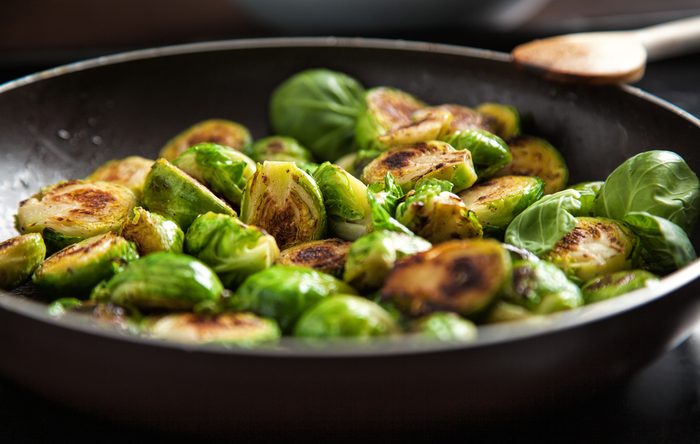
Brussels Sprouts
This vegetable may not have been your favourite thing to eat as a child, but it’s an excellent source of vitamin C, which makes it a great food to include in your diet during the cold and flu season. A cruciferous vegetable, Brussels sprouts are packed with anti-cancer compounds which flush out carcinogens and may also help prevent tumour growth.
Brussels sprouts are low in calories, too! One serving (about 1/2 cup cooked) contains only 32 calories. According to Foodland Ontario, the smallest ones in size are said to have the best flavour.
Try it:
Parmesan Brussels Sprouts
Brussels Sprouts with Walnuts and Arugula
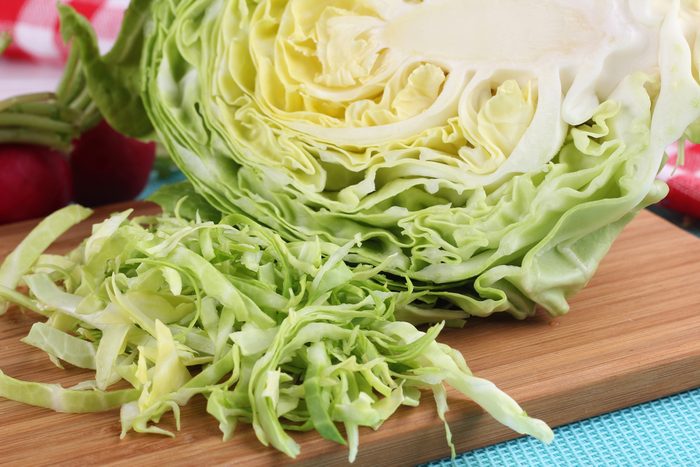
Cabbage
Rich in vitamins C and K, cabbage is also a top-rated food for cancer prevention. Eating more cabbage may help lower your risk of breast, colon and prostate cancers. Plus, new research shows eating this type of cruciferous vegetables could help keep your immune system functioning at top-notch.
Try it:
Cabbage and Carrot Soup
Braised Cabbage with Apple and Mustard
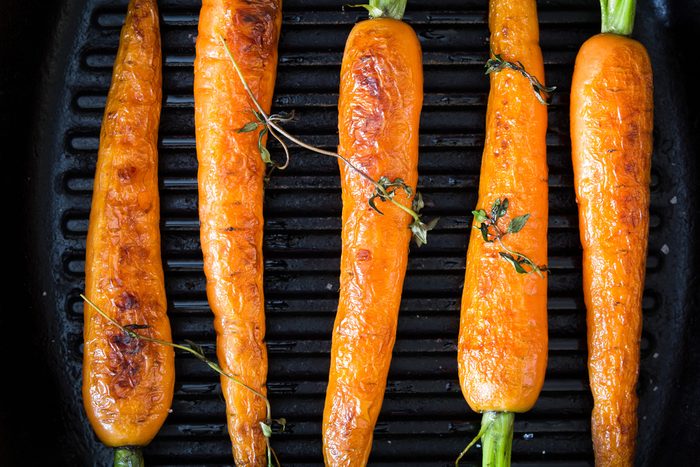
Carrots
Not just for rabbits, carrots are significant health benefits for humans, too. Beta-carotene, which gives carrots their bright orange colour, is a carotenoid which converts to vitamin A in the body, and may help improve your night vision. Plus, carotenoids like beta-carotene are also proven to protect against cancer.
Try it:
Carrot Salad with Almond Dressing
Creamy Carrot Ginger Soup
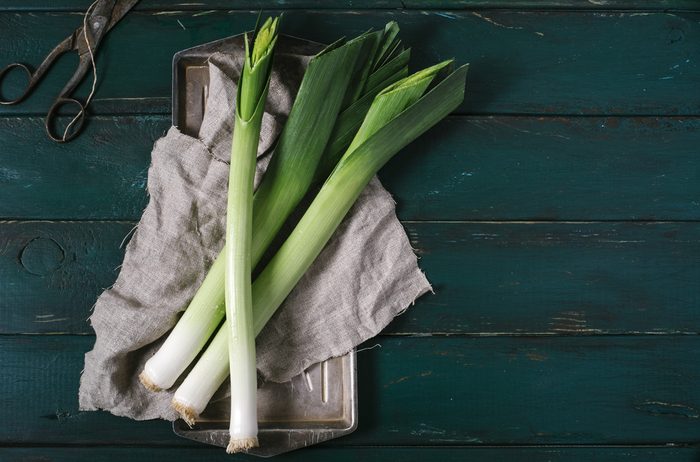
Leeks
Leeks are a great ingredient to add flavour to sauces, soups, casseroles and stir-fries, while also providing a good source of dietary fibre, iron and vitamin C.
Try it:
Leek Mashed Potatoes
Broccoli, Cauliflower and Leek Soup
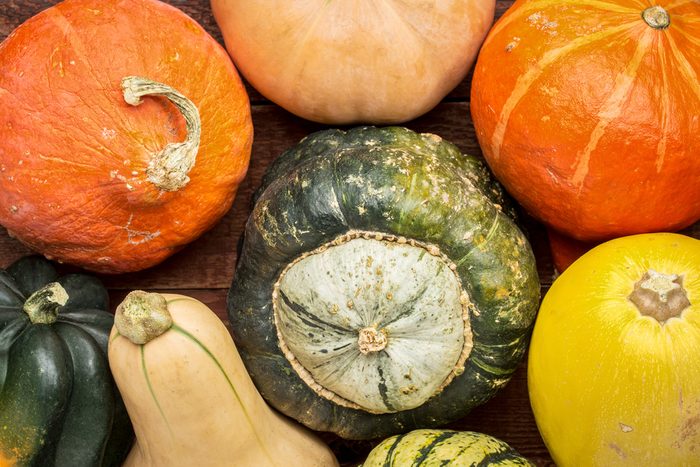
Winter Squash
Squash is an excellent source of antioxidants and immune boosters. Beta-carotene converts to vitamin A in the body-essential for healthy eyes and bone growth. Winter squash is also rich in potassium, which may help lower your risk of developing high blood pressure.
Try it:
Honey-Roasted Squash with Crumbled Feta and Walnuts
Squash, Ricotta and Sage Gnocchi
